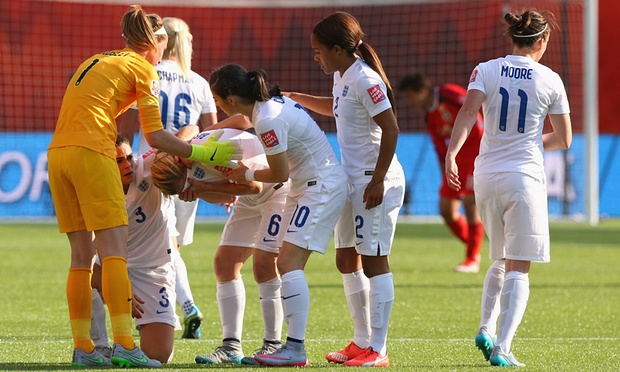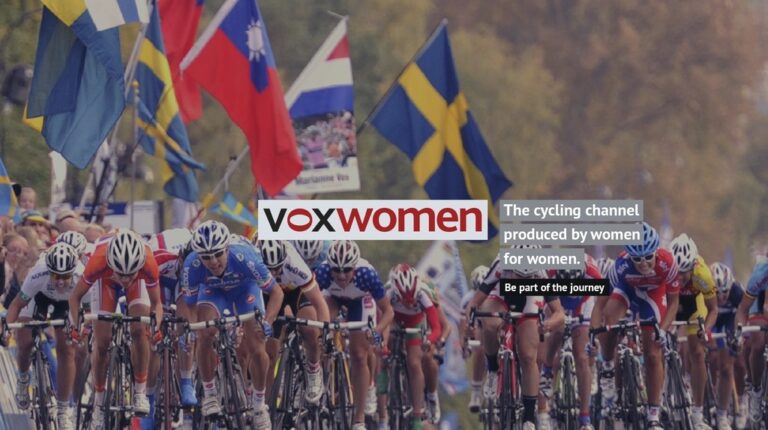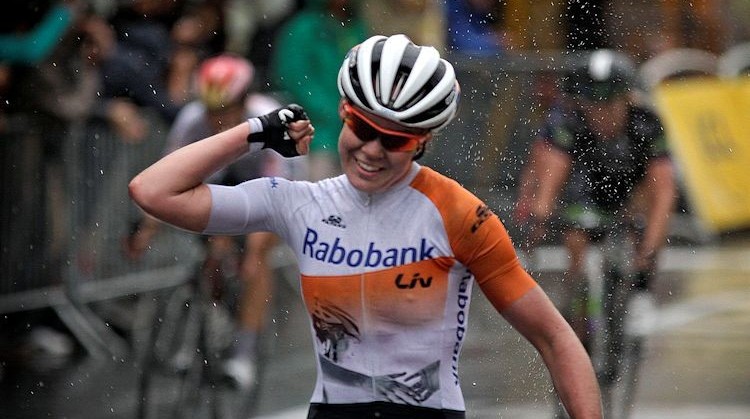
I’ll start by admitting I don’t know a lot about football. Not that I don’t know a lot about women’s football, or men’s football – just the game in general. I’m really more into cycling, swimming, and for some reason speedway on TV.
However, I’m pretty passionate about equality in sport, so I feel qualified to discuss comments that women’s football is “boring” or in some way inferior to what is perceived to be the “real game.”
Helen Wyman: Huge Increase in Cyclocross Prize Fund Will Keep More Women in the Sport
Last night the England team played Japan in the World Cup semi-final. It was indeed the first time an adult England team had made the semi-finals since 1990, the days when Gary Lineker was still on the pitch instead of eating cheese and onion crisps on a park bench.
The team, called the Lionesses, seemed to be serving some cold, hard truth to commentators like Sports Illustrated’s Andy Benoit:

As it were, an own goal by defender Laura Bassett in stoppage time meant the team had their World Cup dreams taken from them.
Up until then, the score had been equal at 1-1, it looked like the game would be going to penalties. Then Bassett lunged against an attack from Japan and aimed to divert the ball, sending it to the goalpost, where it bounced off the crossbar and over the line.
Is ‘Shrink it and Pink It’ outdated?
Understandably, Bassett was distraught. Think blocking your own sprinter in the final metres of the race, or worse, clipping her wheel and denying her, and your team, the win.
It’s well known that when footballers screw up, there’s often a bit of a backlash.
In a 2010 World Cup game against the USA, keeper Robert Green lost concentration and let an easy goal in. His mistake was called a “howler” and a “clanger” and he suffered an onslought from the press.
When Paul Robinson scored an own goal against Croatia, it was reported: “This was the moment England’s Euro 2008 campaign descended into farce as goalkeeper Paul Robinson missed a simple back pass to concede an own goal”.
In both cases, fans were “distraught” and no doubt carried on that they would be able to do better. No one criticised football, or “men’s football” as a whole, however.
5 Issues in Professional Women’s Cycling
All this personal attack on an individual player is not something any reasonable person would wish upon anyone.
However, the reporting and public opinion in the case of the women’s game was a world apart from what their male colleagues received.
The newspapers called it “cruel” and “heartbreaking” – but the public had other ideas.
Terrible error by our Women’s England Football team …..must been thinking about all the ironing back home !
— Grant Melton (@grantmelton1) July 2, 2015
Well, no, we imagine Bassett was mainly thinking about preventing the Japanese from scoring a goal, but ya know… same same…

A mistake by one player for some reason turns into an argument about the validity of women playing football at all, and by extension, women playing sport.

Taking it a step further, Mr UKIP Patriot feels the need to state the the accident makes women as a whole “idiots”.
These comments come from individuals, but sadly they’re not in the tiny minority that can be swept under the carpet.
Bringing the argument back round to cycling, when Lizzie Armitstead crashed following Stage One of the Women’s Tour, there were floods of well wishers willing her return to full health.

There were also some less sympathetic “fans” who chose to transpose her mistake onto all “wimin cyclists”:


By contrast, when Nairo Quintana crashed into the barrier at the Vuelta 2014 Time Trial, there was plenty of discussion over the cause, plenty of criticism of the rider – but interestingly, no criticism on men as a race and their ability to control bikes.

Women kicking balls make mistakes, women riding bikes make mistakes. Men kicking balls make mistakes, and men riding bikes make mistakes.
It’s tiresome that every time a woman is involved in a sporting error that mistake is used to bring into question the validity of women in sport full stop.
The immense support for the Lionesses and viewing figures show that interest is there. The fact the game even made headlines is a step forward. In cycling the huge crowds that gathered for the Aviva Women’s Tour tell us much the same story – but until we can stop turning every race or game into a discussion of the legitimacy of women in sport, we’re a long way off.
(And by the way, the Lionesses have yet to compete for third place, with a match against Germany. They’ve not won against the Germans in 20 games, but even if they fail, they’ll be fourth, and it was still 15 years ago that the men last came fourth. Not that that means that men in general can’t play football, because that would be a ridiculous statement…)





